In this blog post, Sakshi Jain, student, Amity Law School, Lucknow Campus writes about animal abuse. Animals are also living creatures and laws are made to prevent them as they can’t fight for their right.
All living creature have the right to live on this earth but some humans fail to understand this. The inhumane and cruel treatment done to animals is undoubtedly unbelievable. Just because they can’t speak and take a stand for their rights; it does not mean that they cannot feel unbearable and insensitive pain. All are God’s creation and every creature has its own purpose on this earth. Letting innocent ones suffer in pain, sends shivers down the spine of every soft-hearted person. Therefore, inhumane treatment of animals should be stopped as soon as possible.
Animal abuse and cruelty is a very concerning topic currently and is growing rapidly in today’s era. The Prevention of Cruelty to Animals Act, 1960 and the Wildlife Protection Act, 1972 are the laws that govern the safety of animals.
Cruelty to Animals under Prevention of Cruelty to Animals Act, 1960
Section 11(1) (a) to (o) of the Prevention of Cruelty to Animals Act, 1960 states the different kinds or forms of cruelty to animals. Within these sections, some offenses are cognizable and some are not cognizable.
According to Section 2(c) of Criminal Procedure Code, cognizable offenses are those offenses under 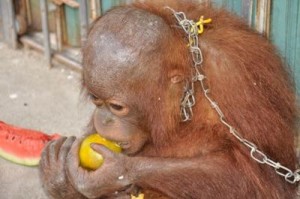 which the police officer is empowered to arrest the offender without a warrant. Whereas, Section 22(l) of Criminal Procedure Code deals with a non-cognizable offense under which the police officer is not empowered to arrest the offender without a warrant. Section 11(1) (1),(n ), (o) and Section 12 are the cognizable offenses and the rest of the sub-sections under Section 11 are non – cognizable offense within Prevention of Cruelty to Animals Act, 1960.
which the police officer is empowered to arrest the offender without a warrant. Whereas, Section 22(l) of Criminal Procedure Code deals with a non-cognizable offense under which the police officer is not empowered to arrest the offender without a warrant. Section 11(1) (1),(n ), (o) and Section 12 are the cognizable offenses and the rest of the sub-sections under Section 11 are non – cognizable offense within Prevention of Cruelty to Animals Act, 1960.
Anyone can make a complaint against animal abuse at the nearest police station and the police officer is under the obligation to carry out an investigation into that complaint. Under Section 34 of the Act, if any complaint is made, then he has the power to seize the animal and produce the same for examination before the nearest magistrate. Section 35 states that the animals are to be produced before the magistrate and if found seriously injured, then they must be taken to the infirmary for further care until they are fit for discharge.
Punishments
Animal Abuse is a punishable offense under Prevention of Cruelty to Animals Act. The offender (in his first offense) will be liable to pay a fine of Rs. Fifty and if in case, the same offense occurs within 3 months of the first offense, then the offender will be liable to pay a fine of not less than twenty-five and not more than hundred rupees or with an imprisonment for the term of three months or both. If it’s a second offense, then the offender’s vehicle shall also be seized.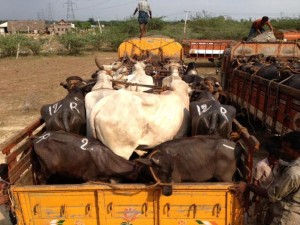
Section 12 of the Act, penalizes practicing of phooka or doom dev among animals. It is the practice done on the cows or any milch animals for improving their lactation. It is illegal to practice these kinds of activities and is a punishable offense under the act. It is a cognizable offense amounting to a fine of rupees not less than one thousand or with an imprisonment for a term which may be extended up to two years or both.
The law provides that it is illegal to treat animals with cruelty or giving poisonous food to them, and is a punishable offense under this act. It is illegal to kill homeless or stray animals. Section 11 of the Act, makes transportation of animals a punishable offense with a fine of Rs 100 or /and 3 months of imprisonment.
The Prevention of Cruelty to an Animal, 1960 prohibits any person from inflicting, causing, or if it is the owner, permitting, unnecessary pain or suffering to be inflicted on any animals.[1]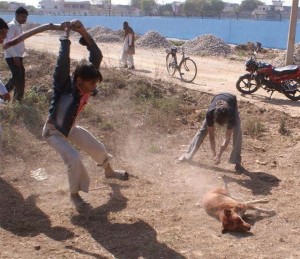
The act makes it illegal to beat, kick, harm, torture, and kill the animal. It is also illegal to override, overdrive or overload animals. The act punishes the people who make use of animals in any competition in which the animal may likely to be harmed or die. The owner of the animal will be held liable for not providing sufficient food or shelter to the animal or allow his diseased pet to roam around the street.
Indian Penal Code
Section 428 and 429 of the India Penal Code makes it illegal to cause injury and cruelty to animals. It is a cognizable offense under this Act.
Section 428 of the India Penal Code states – “Mischief by killing or maiming animal of the value of ten rupees.—Whoever commits mischief by killing, poisoning, maiming or rendering useless any animal or animals of the value of ten rupees or upwards, shall be punished with imprisonment for either a term which may extend to two years, or with fine, or with both.” [2]
It deals with the punishment for committing mischief to animals by killing, poisoning or rendering them useless. The animals of the value of ten rupees and more come under the preview of this section. But under Section 429, the value of animals is above the value of Fifty rupees and more.
Section 503 makes intimidation, a cognizable offense. It states that anyone who threatens or intimidates any person taking care of the dogs is liable under the Penal Code and can be arrested without a warrant. Anyone can love and take care of animals according to their wish. No one can stop them from doing so. But if someone does, he/she will be liable for criminal intimidation under Section 503 of Indian penal code.
Constitution of India
Article 21 of the Constitution of India is the heart amongst all the fundamental rights and is very vast. Therefore, it is the liberty of individuals to take care or feed dogs and cannot be infringed or be questioned if done in a reasonable manner. Thus, caring, feeding or providing shelter to an animal is a natural and basic right of an individual.
Article 19 of the Constitution of India deals with the right to freedom of liberty. It guarantees the right to occupation of every citizen, and if someone is caring for animals as his occupation, then no one can stop them because it is their fundamental and legal right.
Article 48 of the Constitution also provides safeguards for the protection of animals. Article 48 deals with the prohibition of cow slaughter, calves or any other milk providing animals. Further, in 1974, Article 51A (g) was introduced which made it a duty of every citizen to protect and improve the natural environment including forests, lakes, rivers and wildlife and to have compassion for living creatures.[3]
Recent Updates
The Hon’ble High Court of New Delhi has issued an order on 18.12.2010 for feeding stray dogs by the local people. The order stated that “the Animal Welfare Board of India should identify, in consultation with the Residents Welfare Association, Area SHO and the Animal Welfare Organization working in that area, the spots/sites, which in its opinion, would be most suitable for the purpose of feeding dogs”. It further stated that the “Animal Welfare Board of India shall identify suitable sites in the colonies, the subject matter of these petitions, within four weeks from today. 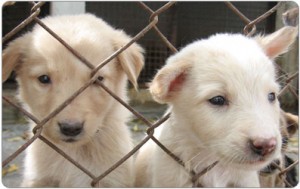 It shall also try to cover as many more colonies as it can during that period”. The Hon’ble Court also directed that “the Delhi Police will ensure that no harm is caused to the volunteers of Animal Welfare Organizations feeding dogs in these localities provided that they feed them only during hours to be specified by Animal Welfare Board and provided further that as soon as suitable sites for feeding the dogs are identified, these organizations will feed dogs only on those identified sites and at hours specified by Animal Welfare Board”. [4]
It shall also try to cover as many more colonies as it can during that period”. The Hon’ble Court also directed that “the Delhi Police will ensure that no harm is caused to the volunteers of Animal Welfare Organizations feeding dogs in these localities provided that they feed them only during hours to be specified by Animal Welfare Board and provided further that as soon as suitable sites for feeding the dogs are identified, these organizations will feed dogs only on those identified sites and at hours specified by Animal Welfare Board”. [4]
Few people are aware of the laws relating to animal abuse. Even police officers are not aware of these laws; this makes the animals more helpless because they cannot fight for their right and are brutally killed by people. People sometimes beat or kick animals for fun. Even animals are used as a source of income to many people.
Jallikattu is an event held in Tamil Nadu as a part of Pongal celebrations on Mattu Pongal Day. It is one of the oldest blood sports, held in the village as a part of the celebration of Pongal. This game has resulted in a number of injuries and deaths. PETA made a complaint alleging this event to be illegal and amounting to animal cruelty. The Hon’ble Supreme Court in its judgment in May 2014, held Jallikattu as an illegal event and should be stopped as soon as possible as it amounts to cruelty towards bulls in that village. The court held that use of bulls in such festive events, harm the animals which are a punishable offense under Prevention of Cruelty to Animals Act, 1960.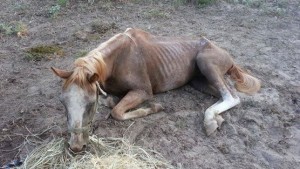
Recently on 15th March 2016, eight puppies were killed by Poonnamma, based in Bangalore because their mother gave birth to them in a drain close to her house. It was a nuisance for her and the immediate action she took was to kill those eight little puppies. “I did this act to teach their mother a lesson and not to litter across my house”, said Poonnamma. The residents of the society and the NGO registered a complaint with Compassion Unlimited Plus Action (CUPA) and the Peenya police respectively on March 17th. The Peenya police have registered the complaint under Section 93 of Karnataka Police Act; punishment for cruelty to animals, Section 11 of The Preventive of Cruelty to Animals Act, 1960 and Section 429 of Indian Penal Code. The case is still pending, and if found guilty, she could end up in prison for 5 years.
Conclusion
Animals are the most innocent creature on this planet. Abuse of animals is an inhumane treatment by any person to them. Prevention of Cruelty to Animals Act, 1960 was enacted with the aim to protect animals and punish the one responsible for their inhumane treatment. Protection of animals is of an important concern because animals cannot fight for their rights. Hence, the Constitution of India also guarantees the preservation of animals within the territory of India. Abuse of animals is a cognizable and a non-cognizable offense under the various heads of Section 11 of Prevention of Cruelty to Animals Act, 1960. Various NGOS’s work towards the betterment of animals and fight for the right and protection of animals.
[divider]
Footnotes:
[1] https://www.animallaw.info/statute/cruelty-prevention-cruelty-animals-act-1960
[2] https://indiankanoon.org/doc/260462/
[3] . https://indiankanoon.org/doc/1644544/
[4] www.caretrust.in/Animal%20laws%20of%20india.pdf
 Serato DJ Crack 2025Serato DJ PRO Crack
Serato DJ Crack 2025Serato DJ PRO Crack


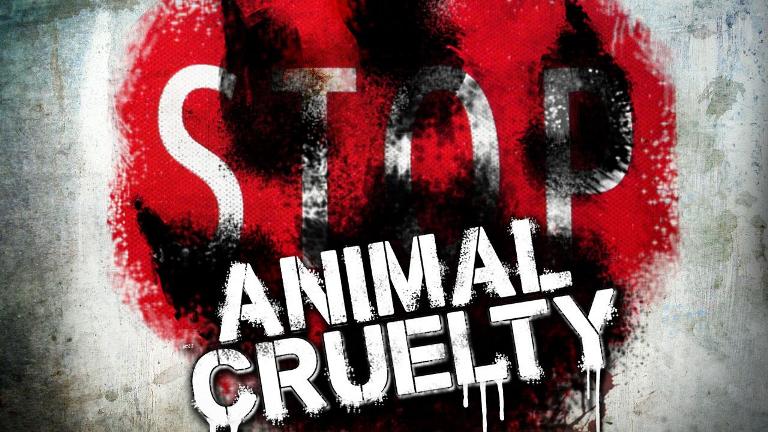







 Allow notifications
Allow notifications



[…] https://blog.ipleaders.in/animal-abuse-inhumane-treatment-innocent-ones/ […]